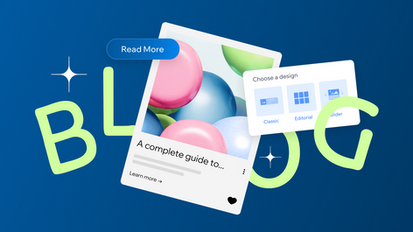Getting Started with Templates for Website Design
How Templates for Website Design Works
Templates for Website Design
Web development is an ever-evolving field that plays a crucial role in building and maintaining websites. In today’s digital age, having a strong online presence is essential for businesses and individuals alike. From e-commerce websites to personal blogs, web development is a key component in creating functional and visually appealing websites. In this article, we will explore the world of web development and discuss the various technologies and tools used in the process.

Templates for Website Design Resources
Templates for Website Design
What is a web hosting provider?
A web hosting provider is a company that offers the technology and services needed for a website to be accessible on the internet. When you sign up for web hosting services, the provider allocates space on a server for your website’s files and ensures that your website is up and running smoothly 24/7.
Why is choosing the right web hosting provider important?
Selecting the right web hosting provider is essential for the success of your website for several reasons:
1. Reliability: A reliable web hosting provider ensures that your website is always accessible to users. Downtime can have a negative impact on your website’s traffic and reputation, so it is crucial to choose a provider with a high uptime guarantee.
2. Speed: The speed at which your website loads can affect user experience and search engine rankings. A good web hosting provider will offer fast server speeds and optimal performance for your website.
3. Customer support: Having reliable customer support is crucial in case you encounter technical issues or need assistance with your website. A good web hosting provider should offer 24/7 customer support to address any problems quickly.
4. Security: Ensuring the security of your website and customer data is paramount. A reputable web hosting provider will offer robust security features such as SSL certificates, firewalls, and regular backups to protect your website from cyber threats.
What factors should you consider when choosing a web hosting provider?
When selecting a web hosting provider, there are several key factors to consider to ensure that you are making the right choice for your website:
1. Types of hosting: There are various types of hosting services available, including shared hosting, VPS hosting, dedicated hosting, and cloud hosting. Choose a hosting type that aligns with your website’s needs and traffic volume.
2. Uptime guarantee: Look for a web hosting provider that offers a high uptime guarantee to ensure that your website is always accessible to users. A 99.9% uptime guarantee is considered industry standard.
3. Server speed: The speed at which your website loads can impact user experience and search engine rankings. Choose a web hosting provider with fast server speeds to ensure optimal performance for your website.
4. Customer support: Having reliable customer support is crucial in case you encounter technical issues or need assistance with your website. Look for a web hosting provider that offers 24/7 customer support via phone, email, or live chat.
5. Security features: Ensure that the web hosting provider offers robust security features such as SSL certificates, firewalls, and regular backups to protect your website from cyber threats.
6. Scalability: Consider whether the web hosting provider offers scalability options in case your website grows and requires additional resources in the future.
7. Pricing: Compare pricing plans and features offered by different web hosting providers to find the best value for your budget. Look for hidden fees and consider any additional costs for domain registration, SSL certificates, or data backups.
The cost of web design can vary significantly depending on a number of factors. One of the primary factors that will impact the cost of your website is the complexity of the design. A simple, static website with basic functionality will typically cost less than a complex e-commerce site with custom features and integrations. Additionally, the number of pages and features you require will also impact the cost of your website. For example, a website with a large number of product pages and a sophisticated search function will cost more than a simple informational site.
The level of customization required for your website will also influence the cost. Pre-designed templates are a cost-effective option for businesses on a budget, but they may not provide the level of customization and branding that you desire. A custom-designed website, on the other hand, will be tailored to your specific needs and can help set your business apart from the competition. However, custom design comes at a higher price tag, so it’s important to weigh the benefits against the cost.
Another factor that can impact the cost of web design is the platform or content management system (CMS) that is used to build your website. Popular platforms like WordPress, Shopify, and Squarespace offer a range of templates and features that can help reduce development costs. However, if you require custom functionality or integration with other systems, you may need to invest in a more advanced CMS or even build a custom website from scratch, which can be more expensive.
In addition to design and development costs, ongoing maintenance and updates should also be factored into the cost of your website. Regular updates to your website’s content, security, and functionality are essential to keep your site running smoothly and to ensure that it remains relevant to your audience. Some web design agencies offer maintenance packages as part of their services, while others charge on an hourly basis for updates and support. It’s important to clarify these costs upfront so that you can budget accordingly.
When shopping for web design services, it’s important to do your research and compare quotes from multiple providers. Prices can vary widely depending on the agency’s location, expertise, and level of service. Be wary of prices that seem too good to be true, as they may indicate low-quality work or hidden fees. Look for a web design agency that has a proven track record of delivering high-quality websites within your budget.
To get the best value for your money, be clear about your goals and requirements when discussing your project with a web design agency. Provide examples of websites that you like, as well as any specific features or functionality that you need for your site. A good designer will be able to provide recommendations based on your budget and objectives, helping you to achieve your desired results without breaking the bank.

Templates for Website Design Explained
Templates for Website Design
Incorporating SEO practices into web design can help improve your website’s visibility in search engine results, driving traffic and increasing conversions. By focusing on website structure, content, user experience, and technical aspects, you can create a website that is not only visually appealing but also ranks well in search engine results. Whether you’re building a new website or redesigning an existing site, incorporating SEO best practices into your web design can help your business succeed online.


